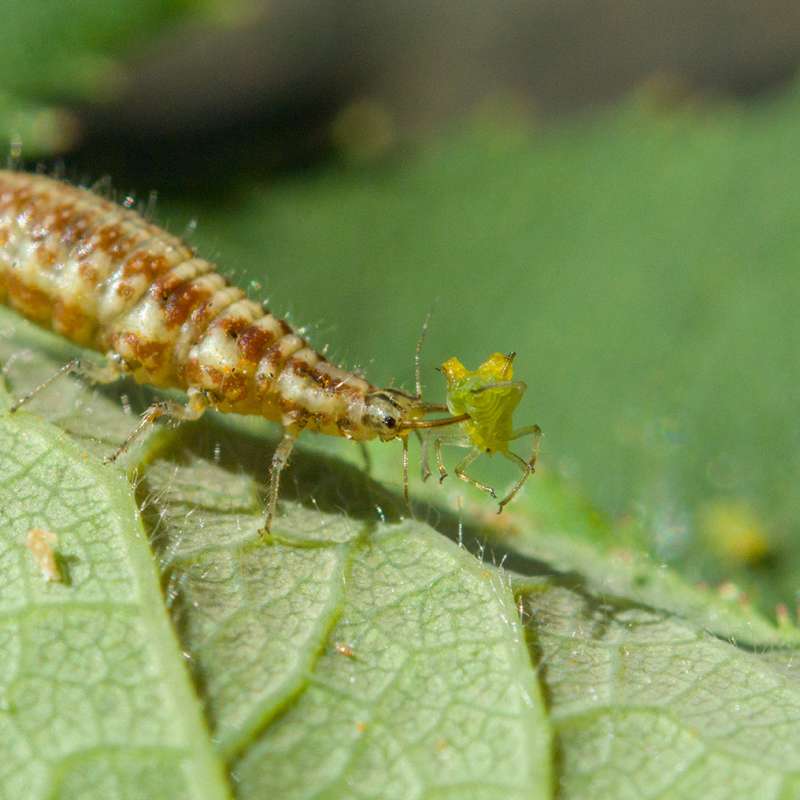“Plant perfume” attracts beneficial insects
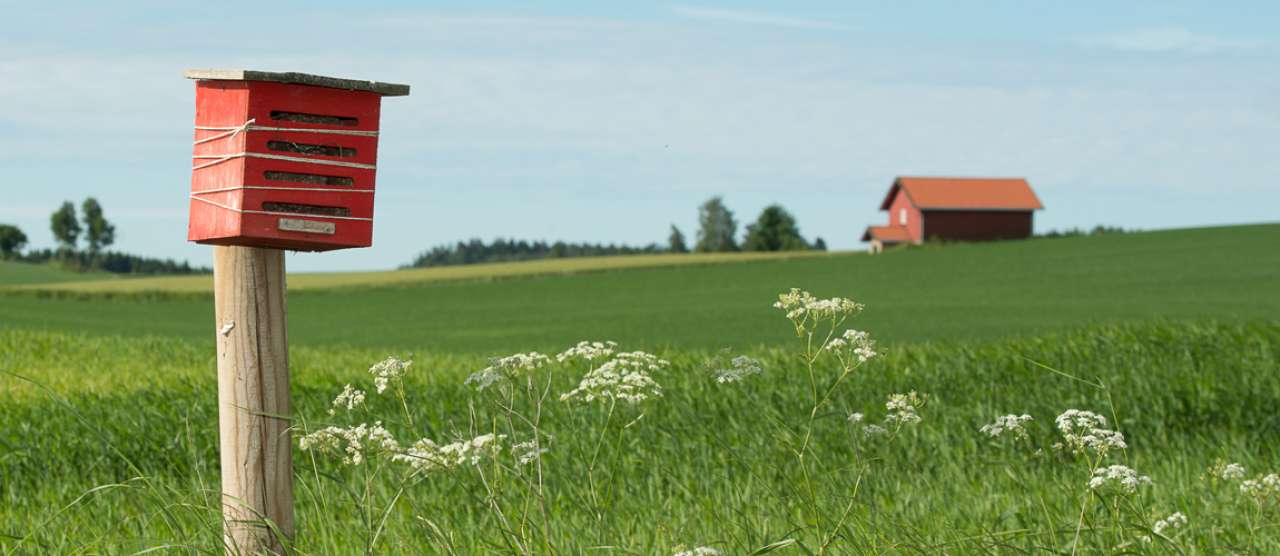
Insect hotel for lacewings. Photo: Erling Fløistad.
Plant fragrances and floral buffer stripes are efficient tools to lure the aphid hunter lacewing into cereal fields, according to trials at the Norwegian Institute of Bioeconomy Research (NIBIO).
Green lacewings are one of the most important beneficial insects we have, as they feed on aphids and larvae and eggs from many other challenging pests. Lacewings have a well-developed sense of smell, and now scientists at NIBIO have found that "plant perfume" is the way to go to tempt this aphid hunter into the cereal field.
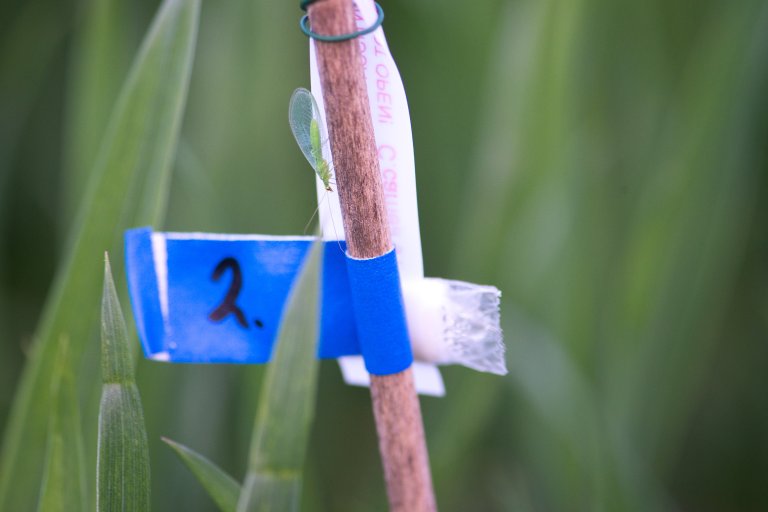
Plant perfume
The scientists Geir Kjølberg Knudsen and Gunda Thöming from NIBIO have in collaboration with researchers from Hungary, produced an odorant that is particularly attractive for lacewings.
This is part of the project SMARTCROP (www.smartcrop.no), where the aim is to develop innovative measures for Integrated Pest Management (IPM).
Field trials show that if capsules containing this odorant is put out in the field, it attracts lacewings and stimulate them to lay eggs in the cereal field. In addition to the plant perfume, the scientists also sowed lines of wild flowers at the field borders to attract lacewings in search of nectar and pollen. These flowers also attracted other insect hunters such as ladybugs and hoverflies to the field.
- The smell of the capsules resembles the one that plants emit when they are under attack - a bit like the plants’ SOS. This attracts beneficial insects such as lacewings, which can help to stop the plant from being eaten, Knudsen says.
He explains that the lines of wild flowers are also important, because the adult lacewings need pollen and nectar to feed on. The larvae of lacewings, however, eat pest insects and can only survive a short time without food. Therefore, the lacewing-eggs must be located in a spot where there are enough pests when the larvae hatch from the eggs.
- If they pour out eggs, but there is nothing to eat, we could end up destroying the population over time, the scientist points out.
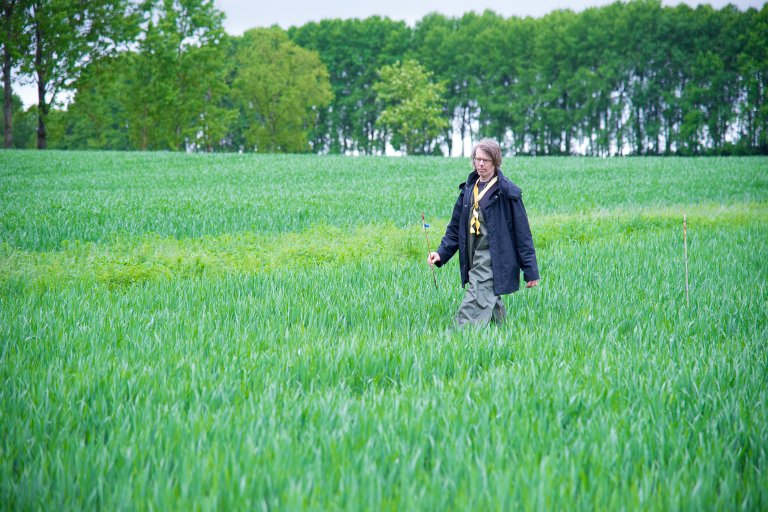
Insect hotels
Another challenge is to get lacewings to survive through the winter.
To increase the survival rate over winter, the NIBIO-scientists set up special overwintering insect hotels – straw-filled wooden boxes where they added the odorant.
- This has increased the share that survives, Knudsen says.
- The result from the trial show that you can increase the amount of beneficial insects in the cereal field using these measures, and consequently reduce the problems with pests, he adds.
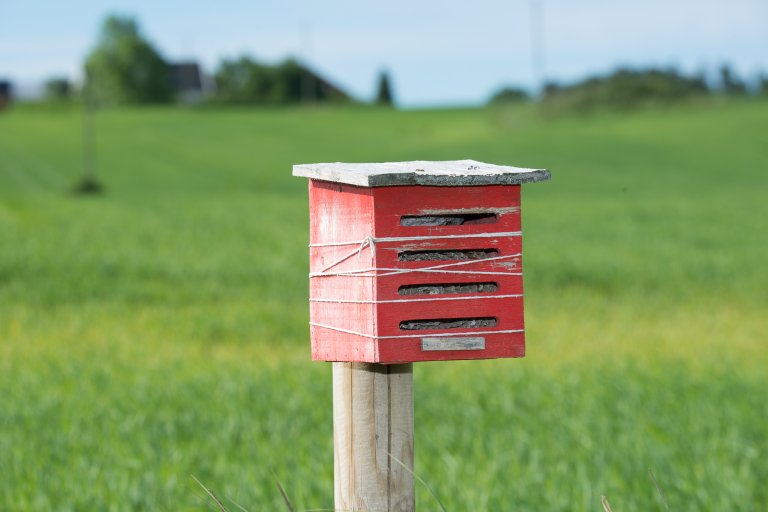
Orchards and private gardens
Both on a national and international level, the fruit and grain producers struggle with aphids. "Using this approach, it is possible to keep the aphis-levels under a certain threshold in fields and orchards," Knudsen claims.
According to Knudsen, such plant perfume may be sold for use in private gardens in the future, but first it must be approved as a pesticide by the Norwegian Food Safety Authority. He also points out that it is advisable to investigate further, as to how the odorant should be spread.
- One way to get the smell out there is to shoot out small pellets that glue themselves to the vegetation – perhaps using a muck spreader or a drone. But such pellets are made of plastic and are not good for the environment. Perhaps it would be better to physically put something in the field that you can also retrieve, such as a small box that puffs the odorant out in small doses in form of a small fog, Knudsen says.
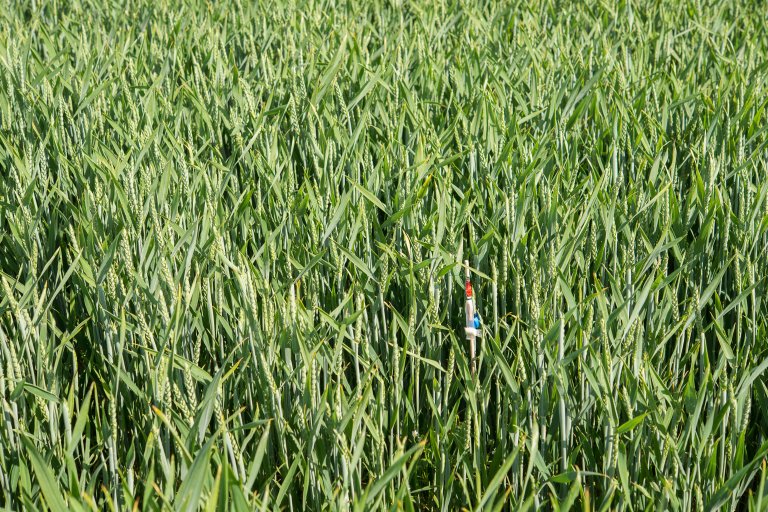
A requirement
It is now a legal requirement for Norwegian farmers to use the eight principle of IPM to protect their crops. Integrated plant management combines several measures that begin prior to sowing and continue until after harvesting. It is a system where it is not acceptable to spray pesticides unless it is absolutely necessary.
- To influence the beneficial insects that are already there to do a better job can help reduce the use of chemical pesticides. But what characterizes IPM is that it considers the total picture. Pests are just one part. We also work with weeds and plant diseases, Knudsen says.
He believes the new regulations are good for the farmers and give them the opportunity to display how professional and capable they are.
- They have to know and learn a lot, which I think, is positive. It is extremely demanding to produce food. Integrated plant management can help us to become even more robust against challenges. I believe Norwegian farmers in collaboration with the research community, have enough knowledge and expertise to develop "the best off" IPM, he concludes.
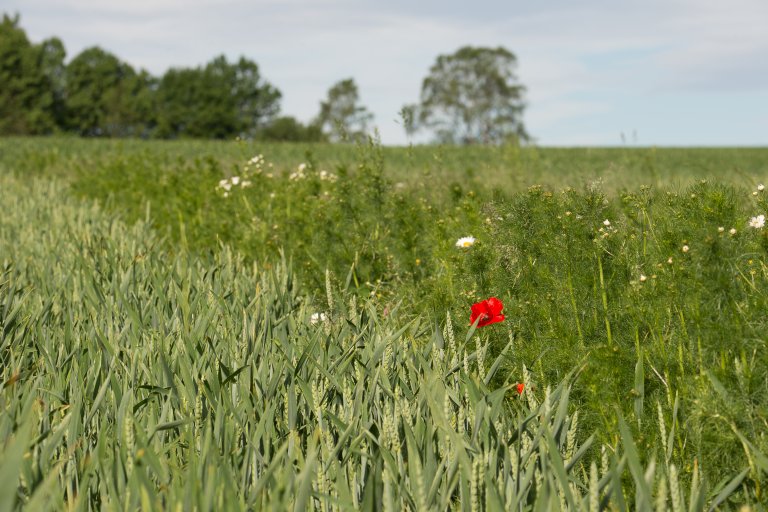
Contacts

Geir Kjølberg Knudsen
Senior Engineer
-
Estates and Facilities
(+47) 456 62 262 geir.knudsen@nibio.no Office Location: Landvik

Contacts

Geir Kjølberg Knudsen
Senior Engineer
-
Estates and Facilities
(+47) 456 62 262 geir.knudsen@nibio.no Office Location: Landvik

